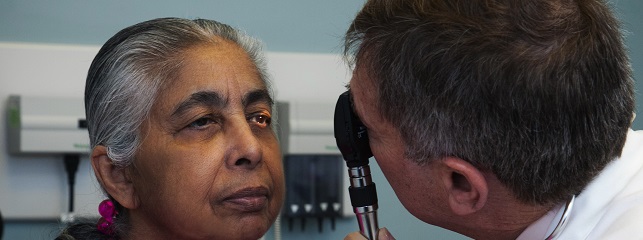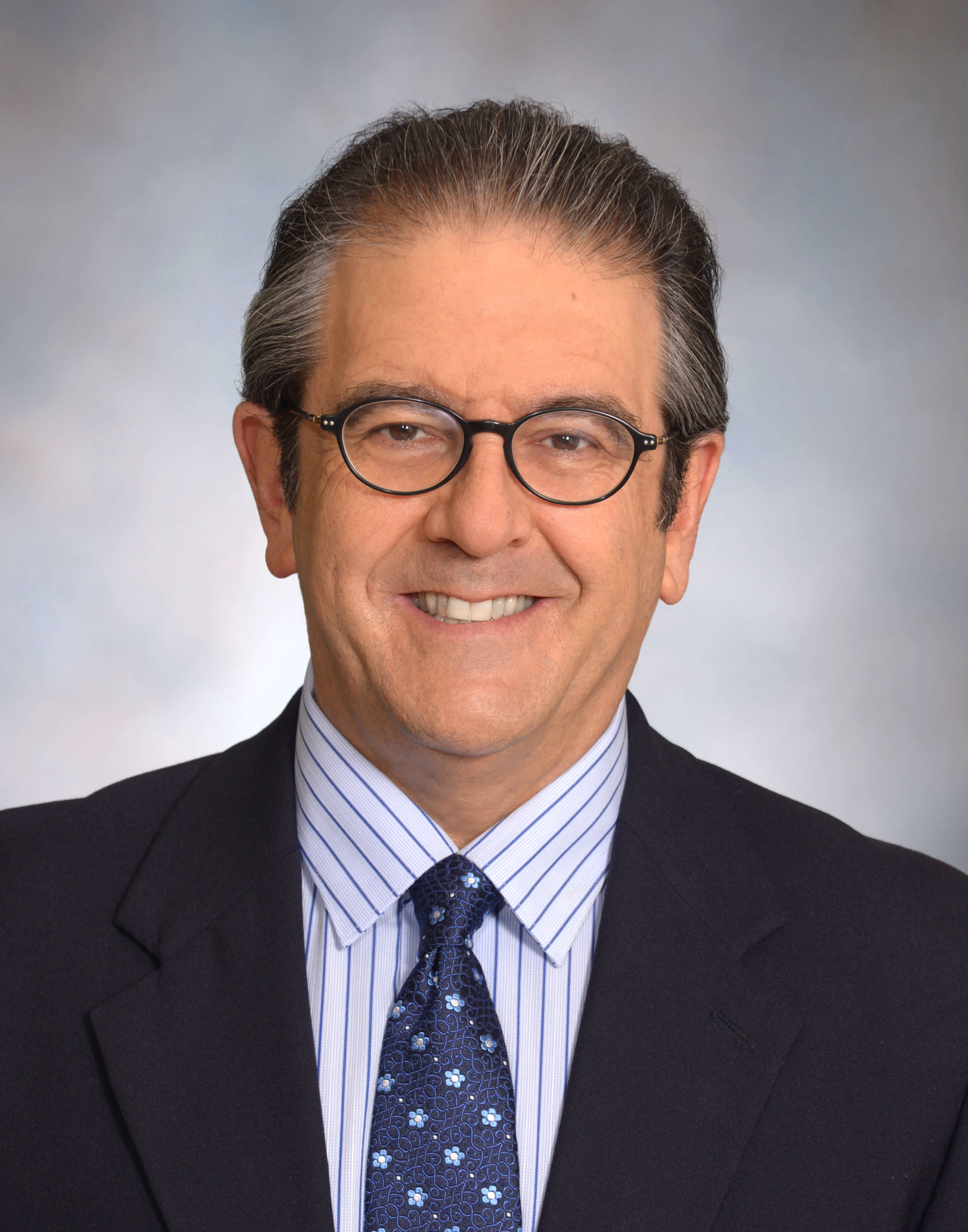
Internal Medicine
Welcome Message
Welcome to the Department of Internal Medicine. We are looking forward to meeting and working together with you in support of our institutional mission and synergistic goals. The Department of Internal Medicine has more than 100 years of collective clinical experience and provides the following services.
- Specialty and Expert Consultation
- Complex Chronic Disease Management
- Disease Prevention and Health Promotion
- Rheumatology Clinic and Research Unit
The Department of Internal Medicine also serves as a robust dashboard to build our Clinical Expert Consortium. If you are a member of our clinical and health care leadership community, we invite you to participate in our department initiatives and join our Clinical Expert Consortium. To strengthen your support and involvement in our department initiatives, we invite you to complete this short survey.
Our Clinical Expert Consortium serves as a forum to engage community physicians, medical students, residents, fellows and health care leaders in collaborative opportunities that drive clinical excellence, research, publications, academic rigor and mentorship and build strategic alliances. Our department launched the Excellence in Health Care and Medicine Clinical Symposia (LEAP) series in support of this mission.
Some of our noteworthy research and publications are in the following areas.
- Achieving health equity and understanding health disparities (Caribbean community)
- COVID-19 health disparities and public health interventions
- Understanding burnout among physicians globally
- Rheumatologic diseases: nutrition and scientific advances
- Allergy and immunology research
- Technology advances to diversify the health care workforce
I look forward to meeting each of you and working together to make strong, positive impacts in science, medicine and health care.
Warmest regards,
 |
Marc M. Kesselman, D.O., FACOI, FACC, FACRChair, Department of Internal Medicine Director, Division of Rheumatology Internal Medicine Director of Research NSU-Dr. Kiran C. Patel College of Osteopathic Medicine To make an appointment to see an NSU Health Internal Medicine physician or Rheumatologist, please call 954-262-4100. For all other questions including academic issues, please contact my Administrative Assistant: Jason Argall |
About Internists
The term "Internal Medicine" comes from the German term Innere Medizin, a discipline popularized in Germany in the late 1800s to describe physicians who combined the science of the laboratory with the care of patients. Many early 20th century American doctors studied medicine in Germany and brought this medical field to the United States. Thus, the name "internal medicine" was adopted. Like many words adopted from other languages, it unfortunately doesn't exactly fit an American meaning.
The core of an osteopathic physician's knowledge and treatment of disease entities is found in internal medicine. Internal Medicine is the field of practice that is dedicated to the primary or specialty care of the adult patient. Based in primary care, the Internist practices both in the outpatient setting and in the hospital. While some Internists spend very little of their time in the hospital, other Internists prefer to restrict the majority of their practices to inpatient care and consultation.
Doctors of internal medicine focus on adult medicine and have had special study and training that focuses on the prevention and treatment of adult diseases. At least three of their seven or more years of medical school and postgraduate training are dedicated to learning how to prevent, diagnose, and treat diseases that affect adults. Internists are sometimes referred to as the "doctor's doctor," because they are often called upon to act as consultants to other physicians to help solve puzzling diagnostic problems.
Simply put, doctors of internal medicine are Doctors for Adults. But you may see them referred to by several terms, including "internists," "general internists" and "doctors of internal medicine." But don't mistake them with "interns," who are doctors in their first year of residency training. Although internists may act as primary care physicians, they are not "family physicians," "family practitioners," or "general practitioners," whose training is not solely concentrated on adults and may include surgery, obstetrics and pediatrics.
Internists are equipped to deal with whatever problem a patient brings -- no matter how common or rare, or how simple or complex. They are specially trained to solve puzzling diagnostic problems and can handle severe chronic illnesses and situations where several different illnesses may strike at the same time. They also bring to patients an understanding of wellness (disease prevention and the promotion of health), women's health, substance abuse, mental health, as well as effective treatment of common problems of the eyes, ears, skin, nervous system and reproductive organs.
In today's complex medical environment, internists take pride in caring for their patients for life -- in the office or clinic, during hospitalization and intensive care, and in nursing homes. When other medical specialists, such as surgeons or obstetricians, are involved, they coordinate their patient's care and manage difficult medical problems associated with that care.
Subspecialities
Internists can choose to focus their practice on general internal medicine, or may take additional training to "subspecialize" in one of 13 areas of internal medicine. Cardiologists, for example, are doctors of internal medicine who subspecialize in diseases of the heart. The training an internist receives to subspecialize in a particular medical area is both broad and deep. Subspecialty training (often called a "fellowship") usually requires an additional one to three years beyond the standard three year general internal medicine residency.
- Allergy/Immunology
- Cardiovascular Medicine
- Critical Care Medicine
- Dermatology
- Endocrinology
- Gastroenterology
- Hematology-Oncology
- Hospitalism
- Infectious Diseases
- Nephrology/Hypertension
- Neurology
- Pulmonary Medicine
- Rheumatology
Training
Internal Medicine continues a physician’s commitment to lifelong learning. Osteopathic (and allopathic) internal medicine requires three years of postgraduate internal medicine training. The first year may be taken as a "medicine track" internship, which meets the AOA requirements for both internship and first year of residency training, followed by two more years. If the first postgraduate year is taken in another type of internship, three more years must be completed to be eligible for certification.
If one wishes to proceed further into sub-specialization, that training begins after completion of three years of training, and continues for one to four more years, depending on the subspecialty. Most subspecialists choose to practice a combination of general internal medicine and their subspecialty. With its strong core curriculum, internal medicine training keeps all options open. It is the choice that allows a physician's career to evolve as interests change over time, and as the market changes to meet America's health care needs. During these years, the resident acquires experience and expertise in both ambulatory and hospital-based care, across the broad spectrum of human health and disease.
Our Mission
We are striving to be the best Department of Internal Medicine in the osteopathic profession. Our most important role is to provide superior medical education and training in internal medicine and its subspecialties to our medical students and residents. We are also dedicated to serve our patients and colleagues by expanding our current services to enable expert consultative care in both General Internal Medicine as well as its subspecialties. NSU's Dr. Kiran C. Patel College of Osteopathic Medicine Department of Internal Medicine will be the source for expert opinion and an authoritative resource for patients and physicians.
Research
The Department of Internal Medicine believes that clinical research is one of the most important contributions that can be made to improve the knowledge base and health of our society (and local community). Our faculty are involved with multiple types of research programs with topics ranging from basic medical science to highly complex medical issues. Our programs are supported by medical students, Masters program students, residents and fellows.
LEAP Symposia

The KPCOM's Department of Internal Medicine hosted the Excellence in Health Care and Medicine - Clinical Symposia (LEAP); event on May 12, 2022. The event discussed Preoperative Evaluation for The Internist. Our guest speaker is Edlira Maska, MD, FACP.
Previous LEAP Events
Breast Cancer
Guest Speakers: Nicole Sandhu, M.D., Ph.D., FACP, FAMWA; Natalie Johnson, M.D., FACS
Date: October 28, 2020
COVID-19 and Heart Disease
Guest Speakers: Kayvan Amini, D.O., FACC
Date: February 24, 2021
Postacute Sequelae of Sars-Cov-2 and Related Health Disparities
Guest Speakers: Vidhya Prakash, M.D., FACP, FIDSA; Vidya Sundareshan, M.D., M.P.H., FACP, FIDSA
Date: April 28, 2021
COVID-19 Crisis and Human Rights
Guest Speakers: Padmini Murthy, M.D., M.P.H., FRSPH, FAMWA
Date: June 30, 2021
Updates In Breast Cancer
Guest Speakers: Reshma L. Mahtani, D.O.
Date: October 27, 2021
Diabetes Care In Older Adults: A 2021 Perspective
Guest Speakers: Naushira Pandya, M.D., CMD
Date: December 15, 2021